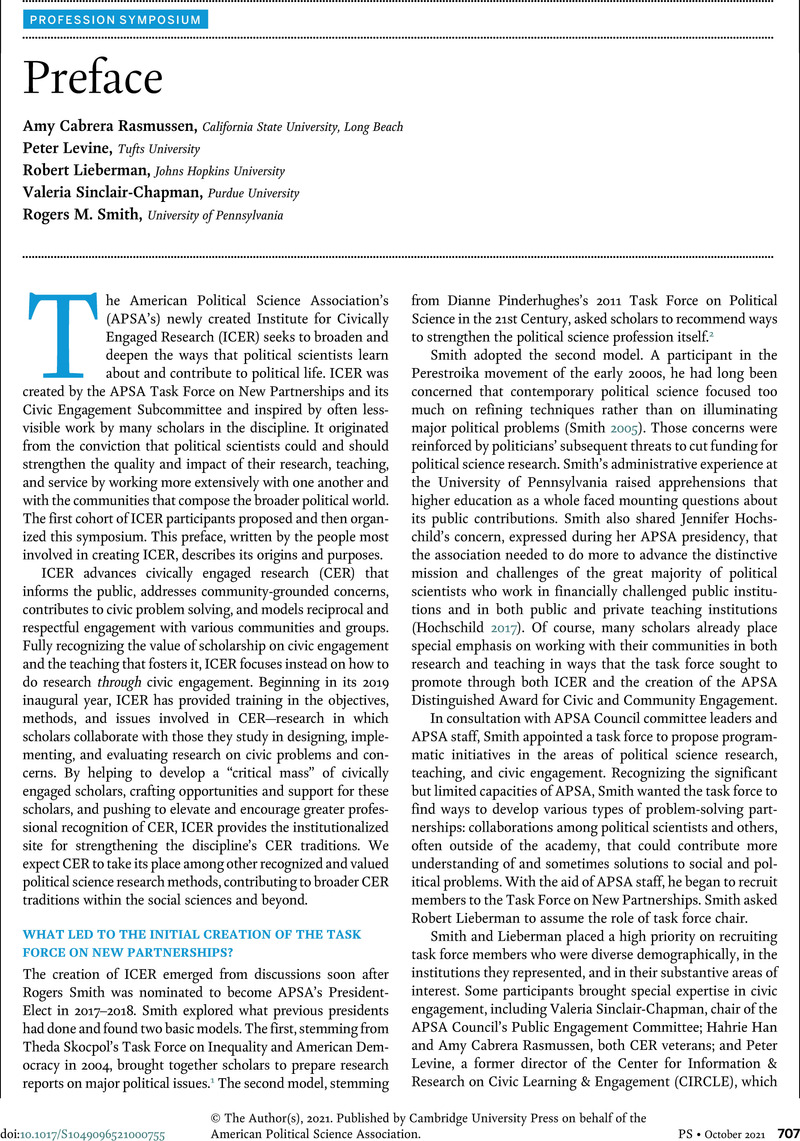Crossref Citations
This article has been cited by the following publications. This list is generated based on data provided by Crossref.
Mitra, Ankushi
Kline, Curtis
and
Bautista-Chavez, Angie M.
2024.
Civically engaged research in political science: a methodological guide.
Politics, Groups, and Identities,
p.
1.
Unidos, Migrantes
Udani, Adriano
Torres Wedding, Maria
Flores Fontanez, Ángel
John, Sara
and
Seleyman, Allie
2024.
Envisioning a world without prisons: group concept mapping as a collective strategy for justice and dignity.
Politics, Groups, and Identities,
Vol. 12,
Issue. 5,
p.
1012.
Chan, Stephanie
Reichert, Frank
and
Krewson, Rosa Castillo
2024.
Vulnerability as identity facet: reconceptualizing vulnerability to conduct civically engaged research.
Politics, Groups, and Identities,
p.
1.
Udani, Adriano
and
Torres Wedding, Maria
2025.
The Case for accompaniment in struggles against the state: designing ethically sensible and response research partnerships in political science.
Politics, Groups, and Identities,
p.
1.
Rice, Laurie L.
Sharrow, Elizabeth
and
Martinez-Ebers, Valerie
2025.
From public engagement to civically engaged research.
Politics, Groups, and Identities,
p.
1.
Reichert, Frank
Rice, Laurie L.
and
Do, Nhat-Dang
2025.
Methodological pluralism in civically engaged research.
Politics, Groups, and Identities,
p.
1.



